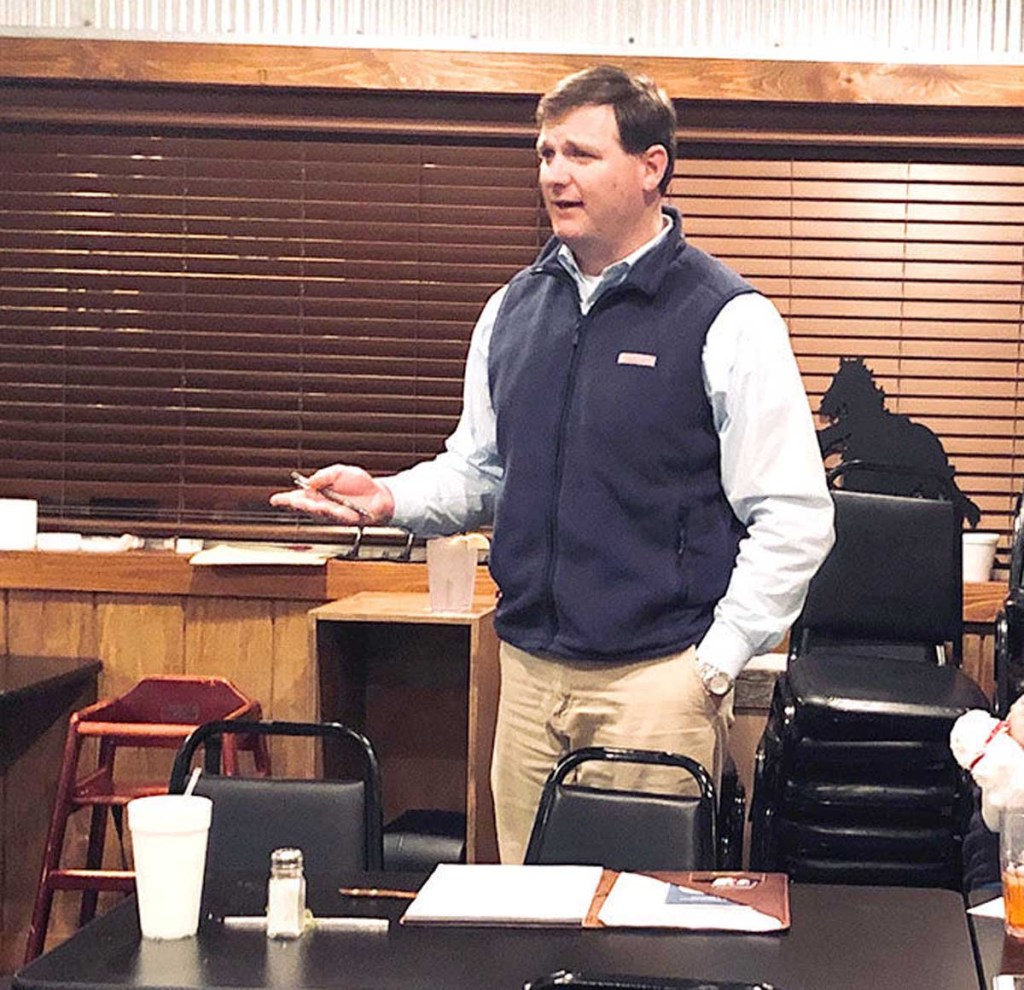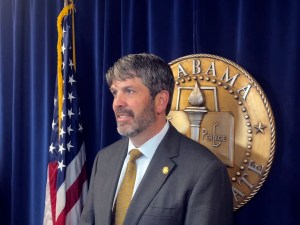First-term Rep. Stadthagen stops in West Point ahead of 2019 session
Published 5:00 am Wednesday, February 6, 2019

- District 9 House Rep. Scott Stadthagen (R-Hartselle) meets with local constituents at a Town Hall in West Point Tuesday night.
WEST POINT — Ahead of next month’s convening of the Alabama legislature, newly-elected District 9 House Rep. Scott Stadthagen (R-Hartselle) is meeting with local constituents to gauge their thoughts on the biggest issues he’s likely to encounter in Montgomery, including his own proposal to take a page from the private sector to entice state agencies to spend their appropriated funds responsibly.
Stadthagen held the first of three planned town hall-style meetings Tuesday at West Point’s Brandin’ Iron Steak House, drawing a small handful of locals, including Cullman County Sheriff Matt Gentry and west side county commissioner Garry Marchman. The West Point event is the only meeting planned for Cullman County; Stadthagen will hold two more meetings with his Morgan County constituents over the next week.
Trending
While he offered his opinion on a number of likely legislative debates for the coming session, Stadthagen also solicited opinions and suggestions from the few who attended Tuesday’s informal exchange. A much-discussed proposed gasoline tax to fund infrastructure projects statewide, supported by Gov. Kay Ivey, wasn’t popular either with Stadthagen or the people who showed up to the meeting — but most acknowledged that finding a stable and fair source of funding for roads and bridges is a problem with no easy solution.
“We haven’t seen an actual bill on this yet,” he said. “The talk is that it’s 12 cents, with the first year bringing it online with 6 cents, increasing every year afterward until it stops at 12. Today we’re paying 18 cents per gallon, and this would jump it up to 30 cents — that’s a lot of money.
“Is the need for infrastructure there? Yes, the need is there. We’ve got roads that need to be fixed and bridges that school buses can’t cross over. But I campaigned on being fiscally responsible, and personally, I think we’re taxed enough. But we do need to figure out how to fix the problem.”
Making more from the funds the state already collects may not solve problems with potential costs that run into the hundreds of millions, and potentially billions, of dollars. But Stadthagen is hoping to gain support for a bill he’s backing that would encourage the state’s departments to police their own spending via a rewards system that would return a portion of unspent annual funds, in the form of bonuses, to every employee in a department that finishes out its fiscal year under budget.
“I pre-filed a bill last week, and basically that’s what it deals with: proposing that every department in the state that receives funding from the General Fund — whatever they save in that fiscal year is going to be a 90/10 split, with a bonus going to employees if they save money and demonstrate that they’re able to conserve the funds that they receive.
“Right now, there’s no accountability [to the legislature] for the money that the departments spend. This would give each department an incentive to spend wisely.”
Trending
The session wound through a host of typical issues; problems that face state government, and its constituent legislative districts, from one political season to the next.
Gentry weighed in on reforming mental health treatment among the inmate population, as well as the current prison reform mandate that, he said, isn’t functioning as it was designed and promotes recidivism. Marchman discussed finding a more stable and equitable solution for infrastructure funding than a straight gasoline tax. And nearly all agreed that legislators must put forward workable alternatives if they wish to head off the coming debate, led from the governor’s office, over raising the state’s fuel taxes.






